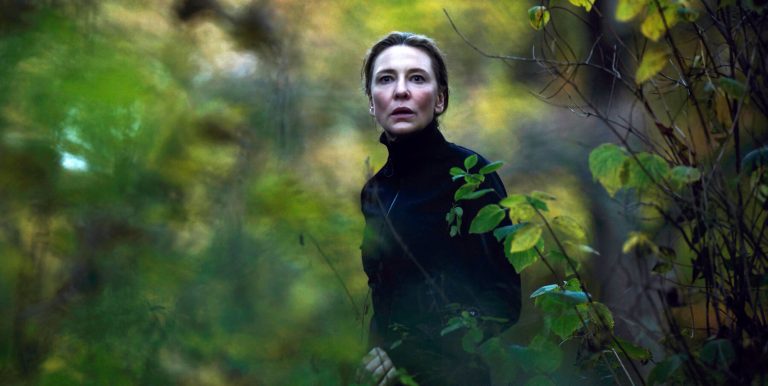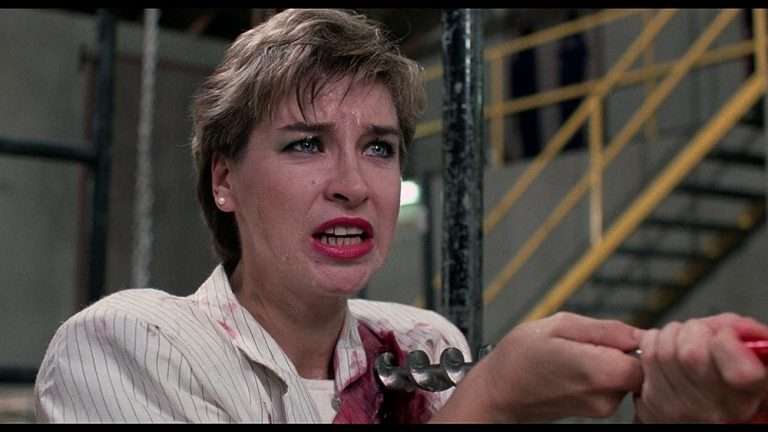In Lilian T. Mehrel’s “Honeyjoon” (2025), a young woman travels to a quaint European island with her mother, a year after her father’s death. She sees it as a way for them to spend some time together as they grieve his loss and reminisce. However, they are surrounded by honeymooners who seek a romantic retreat. The film uses this inherent irony to introduce her frustrations and disappointments without letting that take away the idyllic, light-hearted nature of their trip. Mehrel finds this delicate balance in a film that’s essentially about the act of finding a balance in one way or the other. That can be particularly tricky in situations when there’s always something more to them than what meets the eye.
“Honeyjoon” is innately political as it revolves around a Kurdish-Persian woman and her American daughter seeking respite while the traces of her past keep lurking beneath their everyday interactions. Lela (Amira Casar) doom-scrolls on her phone through the tragic events happening in Iran under the new regime that’s taking away every shred of dignity and self-will from women. She recalls the time she grew up in that country when things were far simpler, and when being free didn’t seem like a rebellious act in itself. So, she remains concerned about what’s happening there during their trip.
Unlike her, June (Ayden Mayeri) doesn’t want the gloomy reality to affect their peaceful stay. She hopes this trip to be a freeing experience without any worries bogging down their simple pleasures. While hoping to spend some time with her mother, she also seeks some space to be adventurous. She sees couples having the time of their lives and hopes to find the same pleasure. With Lela almost always by her side, that gets even more difficult. So, throughout the trip, they both try to bridge their emotional gap while hoping to understand each other better.
That’s where tour guide João (José Condessa) comes into play. He acts almost like a conduit to help them get a sense of their mutual concern while being a kind-hearted companion to both. They confide in him what they don’t in each other. There’s something oddly specific about their behavior rooted in Asian cultures. Lela praises June behind her back, but is rather distant and elusive when around her. It’s as if showing affection is seen as spoiling that person. It’s peculiar cultural insights like these that keep “Honeyjoon” universal.

Besides, it understands the value of fleeting moments and uses them to reveal something profound at times when the characters least expect it. It passes by like a breeze but does not let its light-hearted nature obscure its emotional or political subtext. It is potent and transparent with what it wants to say, but is never heavy-handed with its approach. While being subtle with its cerebral undertones, it is charming in how it handles its mother-daughter relationship with all its quirks and anxieties. It is filled with moments of casual awkwardness that seep through its playful but organic humor.
It’s also impressive how effortlessly Mehrel strikes a balance between its absurdist, occasionally cringeworthy humor with its dramatic beats. One moment, the film shows Lela and June debating their views on grief or the morality police, and the next moment, it seamlessly puts them back into a mundane reality. Even then, it sustains their interpersonal tension while making sure we realize where they come from. It lingers on their moments of revelation and embraces the quietness. Somehow, it manages all of this within its roughly 70-minute runtime.
The film charms its way through the naturalistic dialogue between Lela and June, who are often struggling to understand one another. Lela is more sentimental, and as a mental health professional, she looks at the past as a way to better understand the present. She treasures the metaphysical and the poetic, unlike June, who is less concerned about the lyrical beauty and is more curious about the future and the possibilities it holds for them. June wants to exercise her freedom to experience her life to the fullest instead of being burdened by what’s at stake or being lost in thoughts of the unattainable.
Mehrel’s script highlights the inseparable nature of these personal desires with the global, while keeping its lens focused on its two characters. It brings up some dreamy, nostalgic musings about the father to soften its dramatic edges, but presents its innate sentimentality with careful restraint. A lot of these moments land, thanks to the chemistry between Amira Casar and Ayden Mayeri. They make even the casual bickering between Lela and June so captivating that you would not miss even a moment of their bond.




![Those Who Work [2018]: ‘Locarno’ Review](https://79468c92.delivery.rocketcdn.me/wp-content/uploads/2018/08/Those_who_work_hof_review_1.jpg)



![Actual People [2021]: ‘Locarno’ Review: Seeking Sanity in the Modern World](https://79468c92.delivery.rocketcdn.me/wp-content/uploads/2021/08/Actual_People_2-768x432.jpeg)